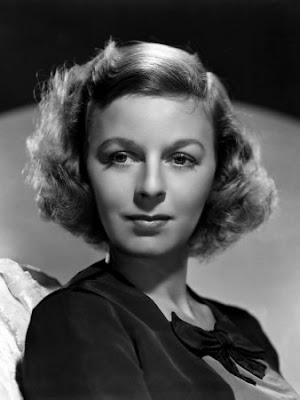But Margaret Sullavan once meant much more. At the height of her fame—the 1930s and early '40s—this Virginia tomboy was a mark of quality in American motion pictures, and a bracingly independent presence in a changing entertainment industry. Sullavan was not easy to miss, with a trademark husky voice and a chameleonic look that could be dowdy one moment and tinseltown glamour the next.
 She preferred the stage, refused long contracts, chose her own co-stars, and made moguls (and Henry Fonda) cry. Her personal story is ripe for bio-pic plundering, and her relatively small body of work deserves rediscovery. Today, of all the actresses from Hollywood's golden era, Margaret Sullvan seems the most modern, the least stilted, the one player unlikely to succumb to a false moment even when everything else seems unnatural or dated.
She preferred the stage, refused long contracts, chose her own co-stars, and made moguls (and Henry Fonda) cry. Her personal story is ripe for bio-pic plundering, and her relatively small body of work deserves rediscovery. Today, of all the actresses from Hollywood's golden era, Margaret Sullvan seems the most modern, the least stilted, the one player unlikely to succumb to a false moment even when everything else seems unnatural or dated.Her own story unfolded in the best neighborhoods of Norfolk, Virginia. My Coastal Virginia Magazine retrospective on Sullavan's life and career includes unpublished photographs from the archives of Chatham Hall, the Virginia school for girls that she attended, and a sidebar list of her best movies. Many of these gems -- The Mortal Storm, The Good Fairy, Three Comrades, The Moon's Our Home, The Shopworn Angel and more -- are currently available on Turner Classic Movies and through streaming services like Warner Archives and Universal Vault.
Learn all about "Sullavan's Travels" by going here.
Unavailable on video or streaming, here's Sullavan's stunning film debut in "Only Yesterday" (1933)
(Bottom photo: Chatham Hall Archive)

No comments:
Post a Comment